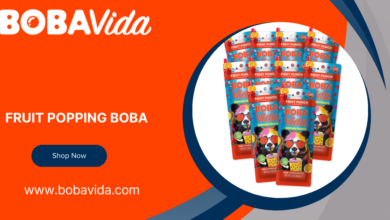
In today’s world, sustainability has become more than just a buzzword; it’s a way of life. As more people become aware of their environmental impact, the demand for eco-friendly products has grown across all sectors, including the kitchen. The kitchen is one of the most resource-intensive areas of our homes, but by choosing sustainable kitchen essentials, we can significantly reduce our environmental footprint. This blog post explores some of the best eco-friendly tools that not only make your kitchen more sustainable but also improve your cooking experience. We’ll also discuss how the rise of online grocery shopping and online supermarkets is making it easier to access these green products.
Why Choose Sustainable Kitchen Essentials?
Before diving into the best sustainable kitchen tools, it’s essential to understand why making the switch is important. The traditional kitchen is filled with single-use plastics, non-recyclable materials, and energy-intensive gadgets. These contribute to landfill waste, pollution, and a higher carbon footprint. By opting for eco-friendly alternatives, you can reduce waste, conserve resources, and support ethical brands that prioritize sustainability.
Sustainable kitchen essentials are typically made from renewable or recycled materials, are designed to last longer, and are often multi-functional, reducing the need for multiple tools. Moreover, these products are increasingly available through online supermarket, making it convenient for anyone to adopt a more sustainable lifestyle.
Top Sustainable Kitchen Essentials
- Reusable Silicone Food Storage Bags
- Why It’s Eco-Friendly: Traditional plastic bags are a major source of waste and are harmful to the environment. Reusable silicone bags are a great alternative as they are durable, washable, and can be used repeatedly, reducing the need for single-use plastic.
- How to Use: These bags can be used for storing leftovers, packing lunches, or even cooking sous-vide. They’re versatile, easy to clean, and can be found in a variety of sizes.
- Bamboo Cutting Boards
- Why It’s Eco-Friendly: Bamboo is a fast-growing, renewable resource that requires fewer pesticides and fertilizers compared to other materials. Bamboo cutting boards are also biodegradable, unlike plastic alternatives.
- How to Use: Use bamboo cutting boards for all your chopping needs. They are gentle on knives and can double as serving platters for a rustic presentation.
- Beeswax Food Wraps
- Why It’s Eco-Friendly: Beeswax wraps are a sustainable alternative to plastic wrap. Made from organic cotton infused with beeswax, jojoba oil, and tree resin, these wraps are reusable, compostable, and help reduce plastic waste.
- How to Use: Wrap them around sandwiches, cover bowls, or use them to wrap up cheese, fruits, and vegetables. They mold with the warmth of your hands and create a natural seal.
- Stainless Steel Straws
- Why It’s Eco-Friendly: Single-use plastic straws are one of the top contributors to ocean pollution. Stainless steel straws are durable, reusable, and easy to clean, making them an excellent replacement.
- How to Use: Keep a set of stainless steel straws in your kitchen for smoothies, iced coffee, or any beverage. Most come with a cleaning brush, ensuring they stay hygienic.
- Compostable Sponges
- Why It’s Eco-Friendly: Traditional sponges are often made from synthetic materials that don’t break down easily. Compostable sponges, made from natural fibers like cellulose or coconut husks, are biodegradable and can be tossed into the compost when worn out.
- How to Use: Use compostable sponges for all your cleaning needs, from dishes to countertops. They work just as well as traditional sponges but won’t harm the environment when discarded.
- Cast Iron Cookware
- Why It’s Eco-Friendly: Cast iron cookware is incredibly durable and can last a lifetime, reducing the need to replace pots and pans frequently. Additionally, it’s free from harmful chemicals often found in non-stick coatings.
- How to Use: Cast iron pans are versatile and can be used for frying, baking, roasting, and even grilling. They require minimal cleaning and actually improve with use as they develop a natural non-stick surface over time.
- Glass Storage Containers
- Why It’s Eco-Friendly: Glass containers are a sustainable alternative to plastic ones. They’re non-toxic, infinitely recyclable, and don’t absorb odors or stains.
- How to Use: Use glass containers for meal prep, leftovers, or pantry storage. They are microwave, oven, and dishwasher safe, making them extremely versatile.
- Eco-Friendly Dish Soap and Brushes
- Why It’s Eco-Friendly: Many conventional dish soaps contain harmful chemicals that can pollute waterways. Eco-friendly dish soaps are made from plant-based ingredients and are biodegradable. Pairing them with wooden dish brushes with natural bristles further reduces plastic use.
- How to Use: Use eco-friendly dish soap and a wooden brush to clean your dishes effectively while minimizing your environmental impact.
The Role of Online Grocery Shopping and Online Supermarkets
One of the challenges in adopting sustainable kitchen essentials has traditionally been finding them. However, the rise of online grocery shopping has made it easier than ever to access a wide range of eco-friendly products. Many online platforms now have dedicated sections for sustainable and organic products, allowing consumers to make more informed choices with just a few clicks.
Online supermarkets often stock a broader range of sustainable products than physical stores, giving consumers access to the latest eco-friendly tools and supplies. Moreover, by shopping online, you can compare products, read reviews, and ensure that you’re getting the best value for your money, whether you’re looking for everyday items or premium kitchen essentials.
Conclusion
Incorporating sustainable kitchen essentials into your home is a powerful way to reduce your environmental impact. From reusable silicone bags to bamboo cutting boards, these eco-friendly tools help minimize waste and promote a greener lifestyle. With the convenience of online grocery shopping and online supermarkets, it’s easier than ever to find and purchase these products, allowing you to make sustainable choices that benefit both your kitchen and the planet. As we continue to embrace sustainability, small changes like these can lead to significant positive effects on the environment.

